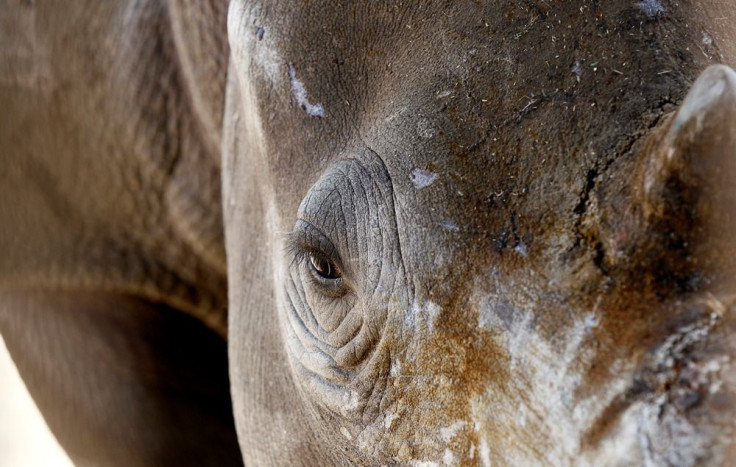Rhino Saved From Poachers Receives Help From Vets

Illegal hunters in South Africa had sedated a rhino and removed its horns and left the animal with an open wound exposed to infections. A few days later, wildlife reserve staff has found the injured rhino alive, the Inquisitr reports.
Sources say that veterinarians operated on the four-year old rhino last week. The animal survived attacks made by poachers, who have butchered over 1,200 rhinos in the country in 2014. Veterinarians removed dead tissues infested with maggots, applied dressing, and placed a fibreglass cast on the injured site.
Reports indicate that the wound is 11 by 20 inches in size and doctors said that it is by far the biggest wound out of 10 similar cases they have handled for the last three years. The rhino was then named “Hope” and doctors are hopeful that the animal will be able to reproduce in the future to contribute to the “survival of the species”, according to University of Pretoria veterinarian Dr. Gerhard Steenkamp.
Hope was reportedly attacked in Lombardini, a wildlife reserve located in Eastern Cape where many rhinos have been hunted recently. The attack on Hope left her nasal bone seriously fractured and had some of the parts removed exposing her nasal passage and sinus cavities.
The surgery was performed on May 18 following its transport to a different wildlife reserve. Steenkamp said in a report from News24 that wound healing would take at least a year to complete with the help of several treatments.
Steenkamp is a member of a South African group, Saving the Survivors, which give focus on treating rhinos that sustained gunshot wounds and other injuries caused by poachers. Saving the Survivors reports that around $75,000 dollars were spent on Lion’s Den, one of the group’s patients who sustained an injury similar to but less severe than Hope’s.
To report problems or leave feedback on this article, email: wendylemeric@gmail.com.






